Here in America, we have the “hillbilly,” “hayseed,” “hick,” “redneck,” “trailer trash,” “yokel,” “dipstick,” and a busload of others. In South Africa they have “clutchplates;” India has “villatics;” and in Mexico there are “aldeanos.”
All around the world there are sub-cultures of every nationality that inhabit rural places where time passes, almost without notice. Those of that lifestyle are not sharp witted and the fact that such individuals do nothing to earn a derogatory label they are tagged as if it were part of their birth certificate.
In Denmark there are “mols.” The mols is a Danish community in the southeast corner of the Jutland peninsula where the land is farmed but still unspoiled and the rolling hills descend directly into the sea. The people call themselves (or are called by others) Molboers. Generally, the molboers are the subjects of the Molbohistorier, an ethnic story told by nearby townspeople to ridicule the rurals.
Postcard History is pleased to re-tell and illustrate with postcards purchased in Ebeltoft, the region’s largest city, five of the best stories from the Molbohistorier with no intent to insult anyone.

The Headless Man
Four Molboes had a long way to the forest so they needed to rise early to collect wood. One morning some of them drove to the forest to bring home a tree they had bought. But on the way the one who drove first happened to lose his axe, and when the others saw that, they thought he threw it away on purpose, so they threw away their axes as well. Then as they stood in the forest, they had nothing with which to chop, they didn’t know what to do, and they certainly didn’t want to return home empty-handed. Finally, one of them had the brilliant idea to pull the tree down; but as they hadn’t brought a rope, one of them had to climb the tree and lay his head in the cleavage between two branches then the others were to pull his legs until the tree yielded. They pulled and they pulled, and eventually they all fell backwards, including the chap they had been pulling, only he had no head. This they couldn’t fathom, they went searching and searching, but they didn’t find the head, because it was stuck in the tree.
Then it was time to return home, so they laid the headless man in the wagon and took him home to his wife and asked if she was sure that her husband had brought his head when he left home that morning. “I can’t remember,” said the wife; but then she thought for a while, and replied, “Oh yes, he did bring his head, he ate cabbage with it this morning before he left.”

Molbo Legs
On a summer day four Molboes were in difficulty. They had sat down on the ground in a circle and when their conversation ended and they decided it was time to stand-up and go home, it was impossible to make out what legs belonged to them. They had tried in vain, in every way but each time one leg moved it was claimed by a Molbo other than the owner. Fortunately, a clever Molbo passed by, and they asked him to decide which legs belong to which Molbo. He showed everyone their legs and wanted them to withdraw their legs from the circle, but it was useless. Then he found a way. He took his walking stick and gave all of them a swat on their shins. When they felt the blows, they could make it to their feet and be home in time for dinner.

The Letter Box
When the first letter box appeared in Ebeltoft, one Molbo with a letter to post dropped it through the slot along with a One-Mark piece and shouted into the air, “Here’s One-mark. May I have the change?” That, after all, was the way he had delt with the postmaster over his counter at the Royal Danish Post Office, and surely they had made some similar arrangement inside the letterbox. Someone must be sitting inside to deal with the business but where they got such little people he could not say.
His change did not arrive but he waited patiently as it was possible that they were short of small change and had sent for some. He waited an hour but still no change came so he put his mouth to the slot, this time and crossly said, “All right, you won’t give me my change. Whatever goes in here is just right, is it? Well, you won’t make a fool of me very often, you’ll see.”
And off he stumped as wise as any molbo as ever graced a molbo story.

The Lobsters
Once a molbo heard that a Norwegian vessel had come to Ebeltoft. He had never seen a Norwegian before and resolved to go and see one. He arrived at the harbor and went along the gangplank, but he didn’t see any people because they had just left. But on the desk some lobsters were crawling round which had escaped from a basket. And the molbo thought that they were hands and shook hands with one of them and said, “How do you do Daddy?”
The lobster squeezed him until he shouted, and when he got his hand free, he said, “Tiny people these Norwegian people are, but they are very heavy handed.”

The Stork in the Corn
One summer when the corn stood high and heavy in the field a molbo village was visited by a stork which had the sad habit of parading up and down in the field in search of frogs. The molbo folk didn’t like it a bit, fearing that the bird would trample down all their fine corn. They discussed the matter a good deal and at last they decided that the village herdsman should go into the cornfield and drive the stork away. But when he was on the point of walking into the corn they discovered that he had very big, broad feet so that he was likely to trample down the corn more than the stork. Here was a pretty kettle of fish!
They couldn’t let him walk in the corn and yet he had been appointed to drive out the stork. At last, one of them had a good idea. They should carry him and then all would be well. That seemed a very reasonable solution because his feet would not touch the ground.
With the solution in mind, they took a field gate off its hinges and the herdsman sat on it and eight men triumphantly carried the herdsman into the corn in pursuit of the stork. The fate of the stork is unknown, but the herdsman did not trample down a single plant.
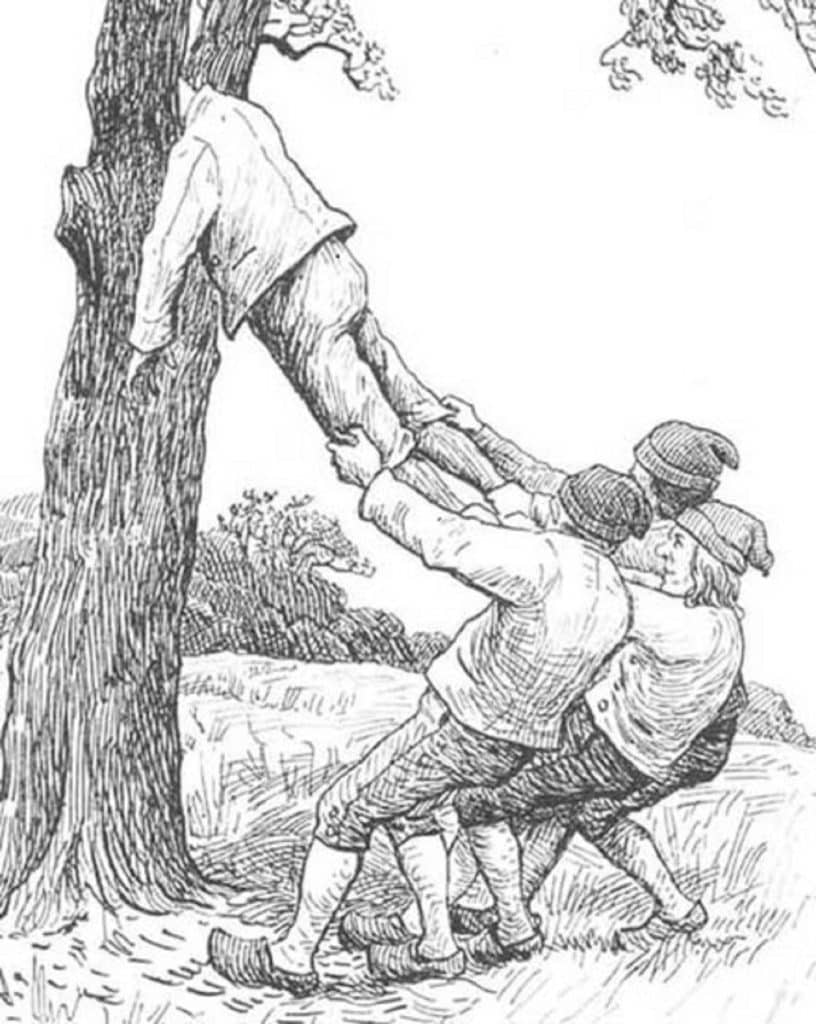
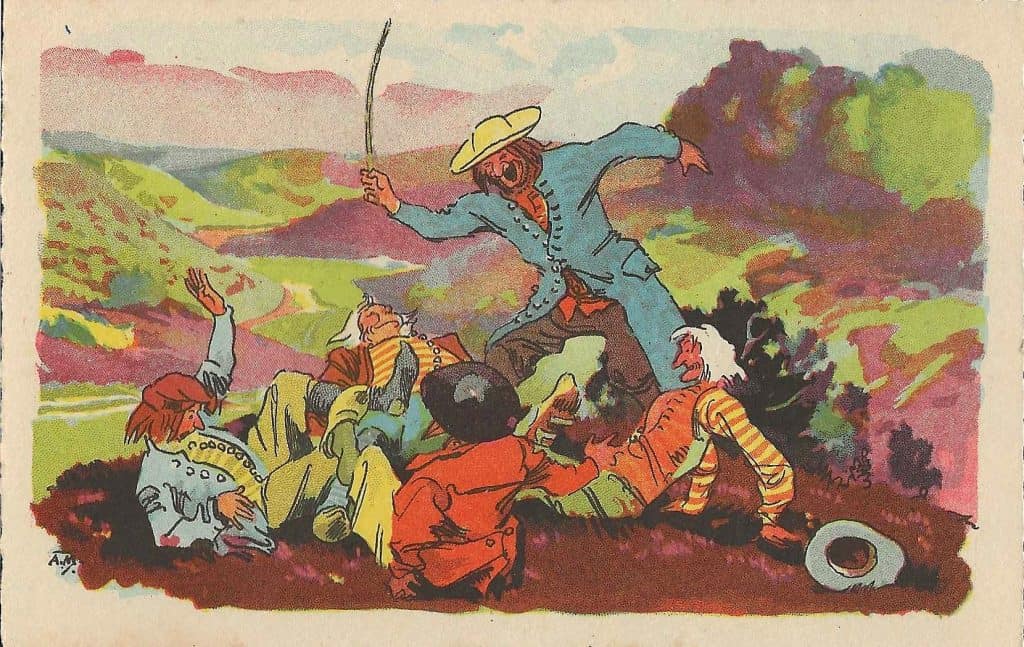
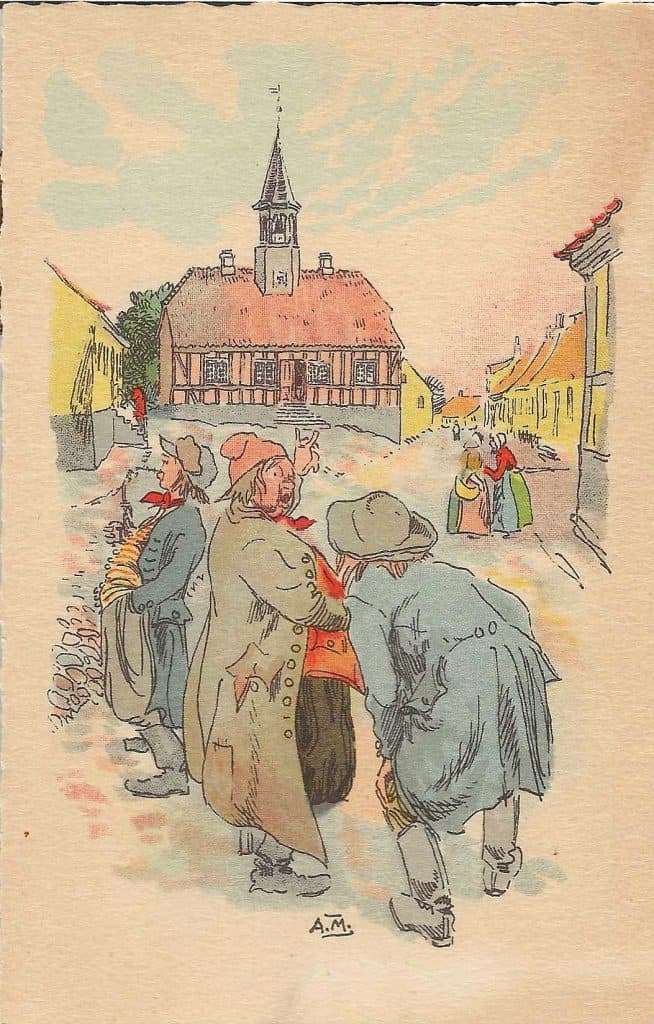
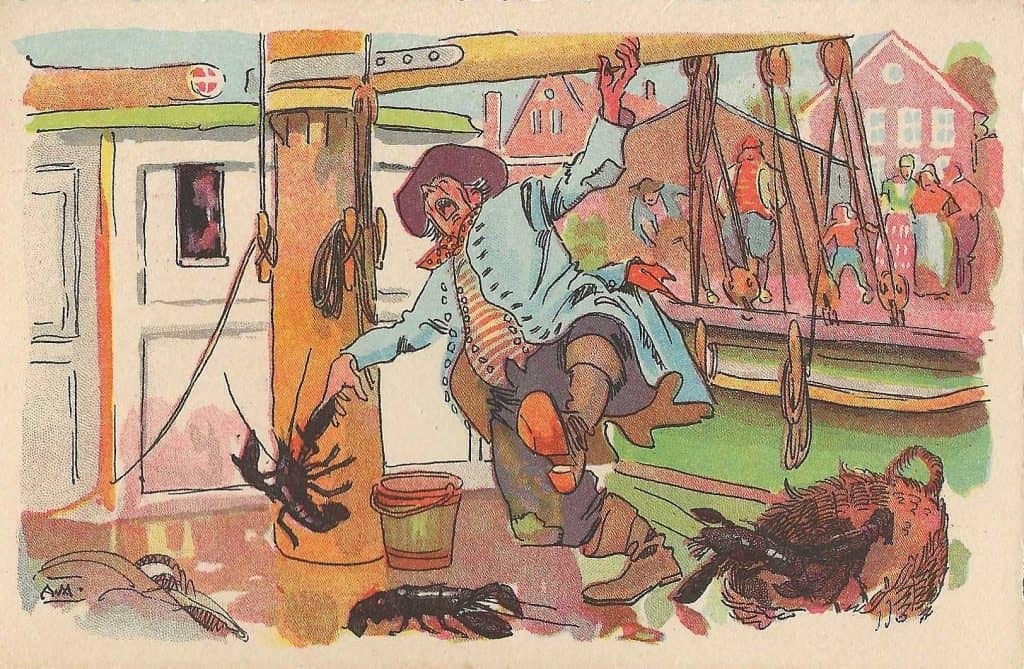
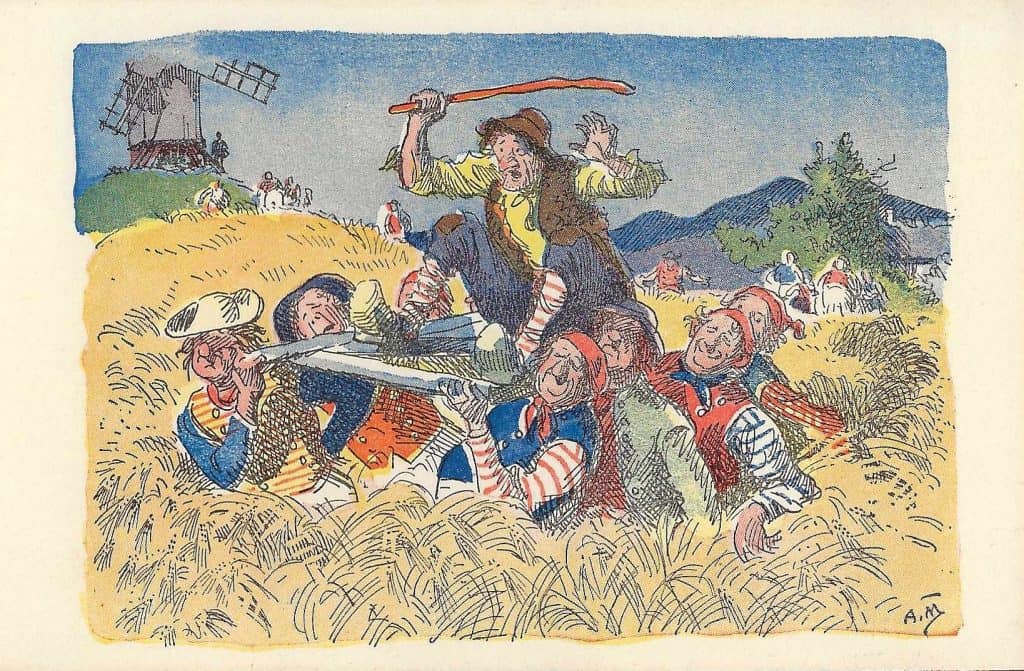
Thanks for telling these stories.. Postcards lead to learn more fairy Tales
This is fun Thankyouu
When I was a kid, we had “Polack Jokes”. How many Polacks does it take to change a overhead lightbulb? Three…one to hold the bulb and two to rotate the ladder. Then there were the “shortest book” jokes…one being “WWII French war heroes”.
In Canada, Newfoundlanders are mocked by “Newfie jokes”. In the USA, fans of a college’s football team often poke fun at their arch-rival school with zingers such as this: “Did you hear State U’s library burned down? Only three books were destroyed, but two of them hadn’t been colored in yet!”